Potentialities in the land of nine dragons
In November 2022, Cambodia’s Sokimex Investment Group and NovaGroup signed an MoU on partnership in development of the 115-hectare Blue Dragon urban area project in Hong Ngu district of Dong Thap province.
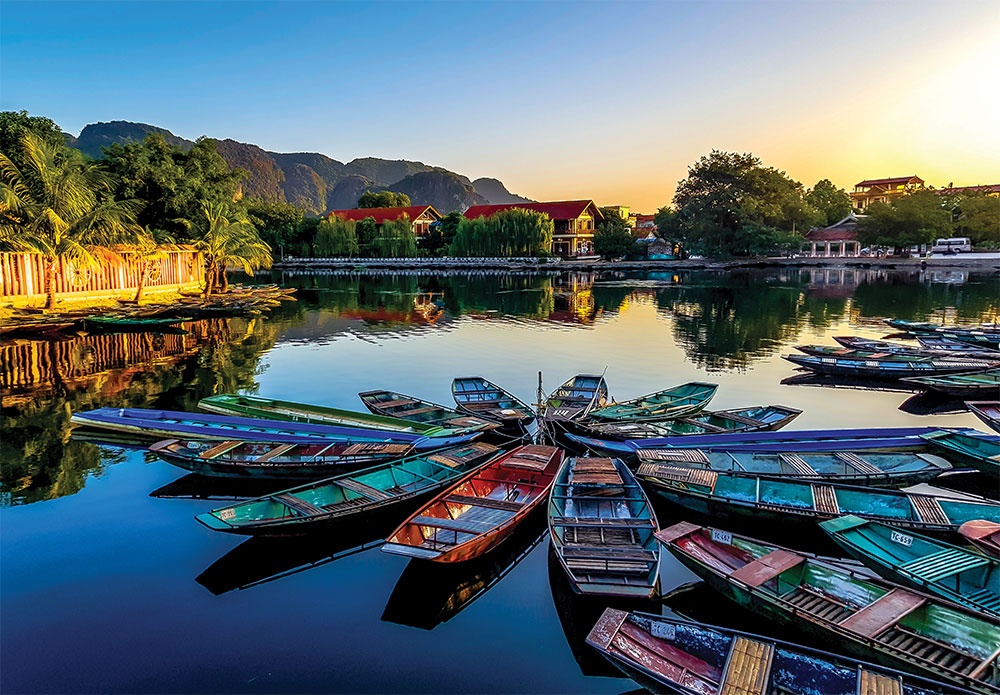 |
| Potentialities in the land of nine dragons |
Blue Dragon is among the component projects of the Mekong Smart City interregional planning venture, which includes urban areas, industrial parks, export processing zones, and AI zones, as well as a commercial hub, food centre, health centre, school, and entertainment complex in the border gate area of the two provinces of An Giang and Dong Thap.
Sokimex and NovaGroup will contribute funds to participate in the auction of land-use rights and develop the project in compliance with the laws of the two nations and according to the terms of the contract.
The Blue Dragon project is anticipated to finish project legalities in the first quarter of 2023 and commence construction in Q2. At the same time, NovaGroup will assist Sokha Hotel, a subsidiary of Sokimex, on construction of the 5,000ha Bokor City metropolitan region in Cambodia’s Kampot province.
In the absence of Vam Cong Bridge, Cao Lanh, and the National Highway No.N2, this area is seen as distant, thus even though the business investment climate is among the best in the region, the outcomes of attracting investment have been minimal. Dong Thap has piqued the attention of investors since facilitating the flow of traffic from Ho Chi Minh City to the province and other regions in the vicinity.
Equally, Hau Giang is a bountiful region that lures numerous investors for a variety of industries including high-tech agricultural production, fisheries, real estate, trade and services, food and beverages, packaging, energy, and heavy industry.
Real estate heavyweights such as Dat Xanh Group, Vingroup, DIC Corporation, TNR Holdings, and Cat Tuong Group have launched a number of large-scale projects in the region. These include TNR’s new urban area in Nga Bay 2, Vingroup’s Vincom Hau Giang Complex in Vi Thanh city, Dat Xanh’s Tay Do Ecopark in Chau Thanh A, and DIC’s Victory City venture.
Ca Mau province, like Can Tho and Hau Giang, is a prospective new land that might draw several real estate enterprises. In March 2022, T&T Group and Ca Mau People’s Committee inked an agreement for strategic collaboration in real estate investment, transport infrastructure, seaports and logistics, energy, tourism, and trade services.
Consequently, this company is researching and executing initiatives in the Ca Mau airport and Hon Gai deepwater port projects, and the highway from Ca Mau city to Cape Ca Mau, the sports union’s urban area. Tuan Chau Group also has plans to construct a 500-ha marine metropolis in this province.
Can Tho, Hau Giang, Tien Giang, Ben Tre, and Soc Trang are prominent new real estate hotspots in the Mekong Delta, while Long An is a location that has historically attracted major corporations due to its closeness to Ho Chi Minh City. From a market that nearly no-one attached importance to, these regions are now home to several urban real estate developments ranging in size from tens to hundreds of hectares.
Tremendous prospects
Real estate investors are drawn to the Mekong Delta since the national government is investing heavily in its infrastructure. The overall state budget assistance for projects in 13 western city and provinces is projected to reach almost $11.3 billion between 2021 and 2025, a 20 per cent increase over the 2016-2020 timeframe. Local capital is around $6.9 billion, central government capital is approximately $3.48 billion, and foreign capital is $933 million.
In addition, the Ministry of Transport, the Ministry of Agriculture and Rural Development, and the Ministry of Health invested around $5.16 billion from the state budget to undertake programmes. Therefore, the expected total investment budget for the region during 2021-2025 is about $16.5 billion.
Consequently, a number of key projects in the region, including Trung Luong-My Thuan-Can Tho Expressway and Chau Doc-Can Tho-Soc Trang Expressway, as well as traffic routes connecting the region and a number of national highways in the region, will soon be completed.
Pham Van Luan, vice chairman of the Can Tho Real Estate Association, said that the landing in the southwest region’s real estate market demonstrates the tendency of developers to seek out new markets. “This creates prospects for enterprises as well as circumstances for urban growth in the southern regions,” Luan said.
The Mekong Delta provides numerous possibilities for infrastructure development if the government pays attention to it, according to Luan. According to the plan for the 2021-2030 period, this region would include the North-South Expressway to the east and west as well as three roads with a combined length of nearly 1,000km.
It may take decades to investigate a new market until the fulfilment of a plan, so now is an ideal time for developers to catch up with the investment trend and begin developing land funds in promising provinces.
Vo Huynh Tuan Kiet, director at CBRE Vietnam, echoed this sentiment, stating that the southwest’s real estate market has gained prominence in recent years owing to the expansion of transportation infrastructure. “Land plots, town houses, villas, shophouses, and luxury apartments are now available in the land of nine dragons, which was previously unknown for its real estate market,” Kiet said.
Particularly as a result of the affluent land fund, many multinational corporations are developing projects on the magnitude of hundreds to thousands of hectares in the southwest area, leaving an indelible impact on the real estate market.
Southwest real estate supply is projected to have increased in 2022 and will do so going forward. Currently, a significant number of major projects continue to arrive in the region. Kiet underlined that retail property continues to account for a significant share of the region’s total land area and that its price swings fast.
“The trend of real estate development in this region’s market in the near future will aggressively expand large-scale urban areas with goods such as town houses and ready-built villas with complete utilities; a product group of eco-gardeners adjacent to nature and rivers; and luxury flats that give management services and utilities for younger consumers,” Kiet said.
 | PM issues action plan on Mekong Delta development The Mekong Delta region is expected to develop agricultural centres in association with specialised farming zones and urban areas. |
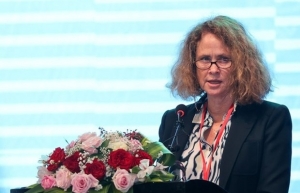 | WB committed to support Vietnam in implementing Mekong Delta master plan The World Bank (WB), an important development partner of Vietnam, is committed to support the Vietnam in implementing the newly unveiled Mekong Delta Regional Master Plan. |
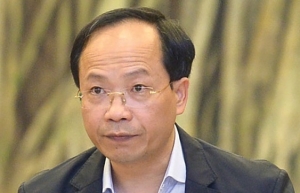 | Options abound for funding of transport in Mekong Delta The Mekong Delta region comprises 13 cities and provinces with important roles and strategic locations. It is a key economic hub with huge potential and advantages, especially in agriculture, seafood, and tourism. |
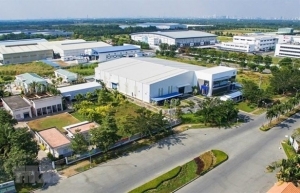 | Mekong Delta province's industrial parks prove irresistible to investors Industrial parks and clusters in the Mekong Delta province of Tien Giang attracted more than 834 billion VND (35.4 million USD) in the first eight months of this year, according to the province People’s Committee. |
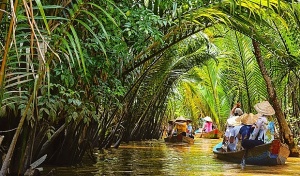 | Experts suggests solutions to develop farm produce, rural tourism in Mekong Delta Training on free trade agreements are among the measures suggested for the development of the farm produce market and rural tourism in the Mekong Delta. |
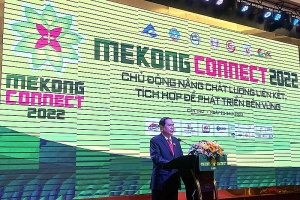 | Promoting sustainable economic development in Mekong Delta Many hot topics were discussed at the Mekong Connect 2022 Forum including measures to improve the quality of integration in science, technology, and innovation. |
What the stars mean:
★ Poor ★ ★ Promising ★★★ Good ★★★★ Very good ★★★★★ Exceptional
Related Contents
Latest News
More News
- Construction firms poised for growth on public investment and capital market support (February 11, 2026 | 11:38)
- Mitsubishi acquires Thuan An 1 residential development from PDR (February 09, 2026 | 08:00)
- Frasers Property and GELEX Infrastructure propose new joint venture (February 07, 2026 | 15:00)
- Sun Group led consortium selected as investor for new urban area (February 06, 2026 | 15:20)
- Vietnam breaks into Top 10 countries and regions for LEED outside the US (February 05, 2026 | 17:56)
- Fairmont opens first Vietnam property in Hanoi (February 04, 2026 | 16:09)
- Real estate investment trusts pivotal for long-term success (February 02, 2026 | 11:09)
- Dong Nai experiences shifting expectations and new industrial cycle (January 28, 2026 | 09:00)
- An Phat 5 Industrial Park targets ESG-driven investors in Hai Phong (January 26, 2026 | 08:30)
- Decree opens incentives for green urban development (January 24, 2026 | 11:18)

 Tag:
Tag:





















 Mobile Version
Mobile Version